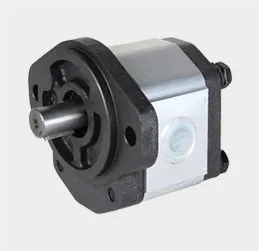High-Quality Aluminium Die Casting Solutions for Various Applications and Industries
The Versatility and Advantages of Aluminium Die Casting Products
Aluminium die casting is a highly efficient manufacturing process that produces precision metal parts by forcing molten aluminium into reusable steel molds. The process is renowned for its ability to create complex and detailed shapes with high dimensional accuracy, making it an ideal solution for a multitude of industries. From automotive to electronics, the applications of aluminium die casting products are vast and varied, contributing significantly to modern technology and engineering.
One of the most compelling reasons for the widespread adoption of aluminium die casting is its superb material properties. Aluminium itself is a lightweight, strong, and corrosion-resistant metal. This combination allows manufacturers to produce parts that maintain structural integrity while minimizing weight, which is particularly crucial in industries such as automotive and aerospace, where weight reduction can lead to improved fuel efficiency and performance. Additionally, aluminium's natural resistance to oxidation means that die cast products require less maintenance and have a longer lifespan compared to components made from less durable materials.
The die casting process itself is highly efficient, offering several advantages over other manufacturing methods. One of the primary benefits is the speed of production. Once the die is manufactured, aluminium parts can be produced rapidly, with cycle times often ranging from just a few seconds to a couple of minutes per cast. This high throughput enables manufacturers to meet large-scale production demands without sacrificing quality. Furthermore, the precision of the die casting process contributes to less waste material, making it environmentally friendly compared to other more wasteful manufacturing techniques.
The surface finish of aluminium die casting products is another notable advantage. Parts produced through this process can achieve excellent surface quality and fine details. In many cases, additional surface treatments may not even be necessary, as the inherent surface smoothness often satisfies aesthetic and functional requirements. This capability is particularly beneficial in the consumer electronics sector, where the visual appeal of components is paramount.
aluminium die casting products

From an economic perspective, investing in aluminium die casting can result in significant cost savings over time. The durability and lightweight nature of aluminium products can lead to reduced shipping costs and lower fuel consumption during transportation, all of which contribute positively to a company's bottom line. Additionally, the long-term performance of casting parts reduces the likelihood of failures and the associated costs of replacements or repairs, further enhancing overall cost efficiency.
Moreover, the versatility of aluminium die casting allows for the production of various complex parts, including automotive engine blocks, housings, and brackets, as well as components for household appliances, computer cases, and everyday consumer goods. This adaptability means that businesses can leverage die casting to create tailored solutions that meet specific design requirements while benefiting from the efficiencies the process provides.
Aluminium die casting is also notable for its capability to support both small-scale and large-scale production runs. Whether a company requires a few hundred parts or several million, die casting can be tailored to fit these needs efficiently. This flexibility makes aluminium die casting an attractive option for both large manufacturing firms and small enterprises seeking to innovate with their products.
In conclusion, aluminium die casting presents numerous advantages that position it as a preferred manufacturing process for a wide range of products. The combination of cost-effectiveness, durability, efficiency, and surface finish quality makes it an attractive choice for industries looking to improve product performance while minimizing costs. As technology continues to advance and industries evolve, the role of aluminium die casting products is only expected to grow, further solidifying their place as a cornerstone of modern manufacturing. Whether it’s enhancing the performance of vehicles, innovating consumer electronics, or producing everyday household items, aluminium die casting remains pivotal in driving progress across multiple sectors.
-
crawler mounted drill rig-Baoding Hairun Machinery And Equipment Trading Co., Ltd.|Underground Drilling Solutions, Confined Space EfficiencyNewsAug.16,2025
-
Custom OEM Couplings | Precision Machining & ManufacturingNewsAug.16,2025
-
Advanced Drilling Solutions for Confined Spaces - Baoding Hairun Machinery | Crawler Mounted Drill Rig&Confined Space ApplicationsNewsAug.16,2025
-
Drill For Confined Spaces-Crawler Drill Rig for Mining Applications|Baoding Hairun Machinery And Equipment Trading Co., Ltd.NewsAug.16,2025
-
Crawler Mounted Drill Rig-Baoding Hairun Machinery And Equipment Trading Co., Ltd.|Compressed Air Power&Frame SupportNewsAug.15,2025
-
Crawler Drilling Rig - Baoding Hairun|Confined Space Drilling&Mine SafetyNewsAug.15,2025















